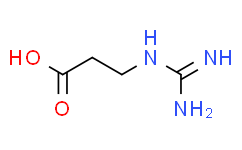| DC33580 |
DODMA
|
DODMA, also known as MBN 305A is a a cationic lipid containing the unsaturated long-chain (18:1) oleic acid inserted at both the sn-1 and sn-2 positions. It has been used in the composition of lipospomes formulated as stable nucleic acid lipid particles that can encapsulate siRNA or other small molecules to be used for drug delivery |
| DC33635 |
DODAP
|
DODAP, also known as 1,2-Dioleoyl-3-dimethylammonium-propane, is a cationic lipid. It has been used as a component in liposomes that can be used to encapsulate siRNA, immunostimulatory oligodeoxynucleotides, antisense oligonucleotides, or chemotherapeutic agents for in vitro and in vivo delivery. |
| DC33636 |
DOTAP
|
DOTAP, also known as 1,2-Dioleoyl-3-trimethylammoniumpropane, is a cationic liposome-forming compound used for transfection of DNA, RNA, and other negatively charged molecules into eukaryotic cells. It has been used in gene delivery vectors for gene ther |
| DC46471 |
RP101988
|
RP101988, the major active metabolite of Ozanimod, is a selective, potent S1PR1 (sphingosine-1-phosphate receptor 1) agonist, with EC50s of 0.19 nM and 32.8 nM for S1PR1 and S1PR5, respectivlely. |
| DC45184 |
Hydrofurimazine
|
Hydrofurimazine is a NanoLuc substrate whose enhanced aqueous solubility allows delivery of higher doses to mice. Hydrofurimazine enables sensitive bioluminescence imaging for either prolonged light production of high sensitivity. |
| DC37901 |
PD-173212
|
PD-173212 is a small molecule N-type calcium channel blocker. |
| DC37333 |
N,N-Diethyl-p-toluamide
|
N,N-Diethyl-p-toluamide is a mosquito repellent. |
| DC37321 |
AI3-15902
|
AI3-15902 is a biochemical. |
| DC37283 |
Methyl phenylcarbamate
|
Methyl phenylcarbamate is a biochemical. |
| DC37252 |
Ampyrone
|
Ampyrone is a metabolite of AMINOPYRINE with analgesic and anti-inflammatory properties. It is used as a reagent for biochemical reactions producing peroxides or phenols. Ampyrone stimulates LIVER MICROSOMES and is also used to measure extracellular water. |






















